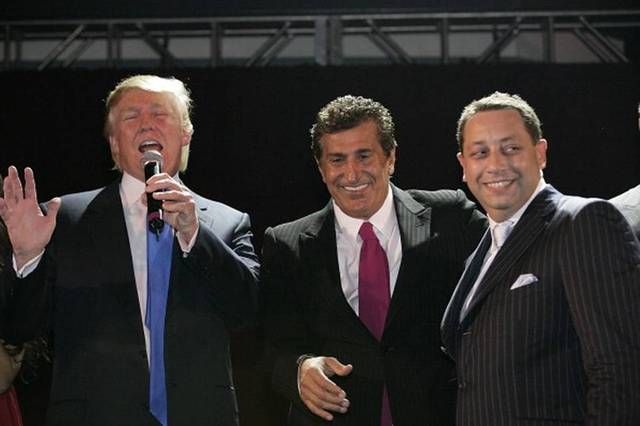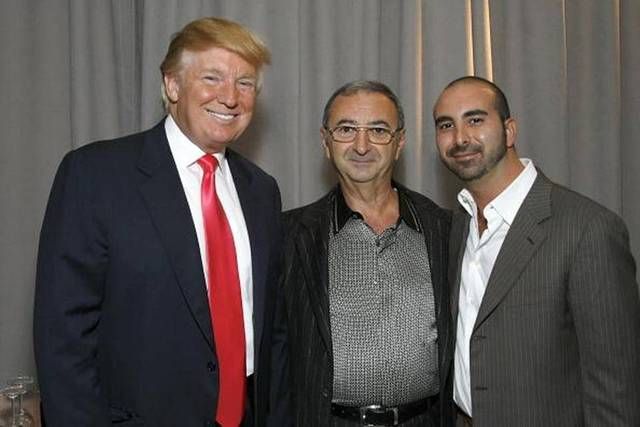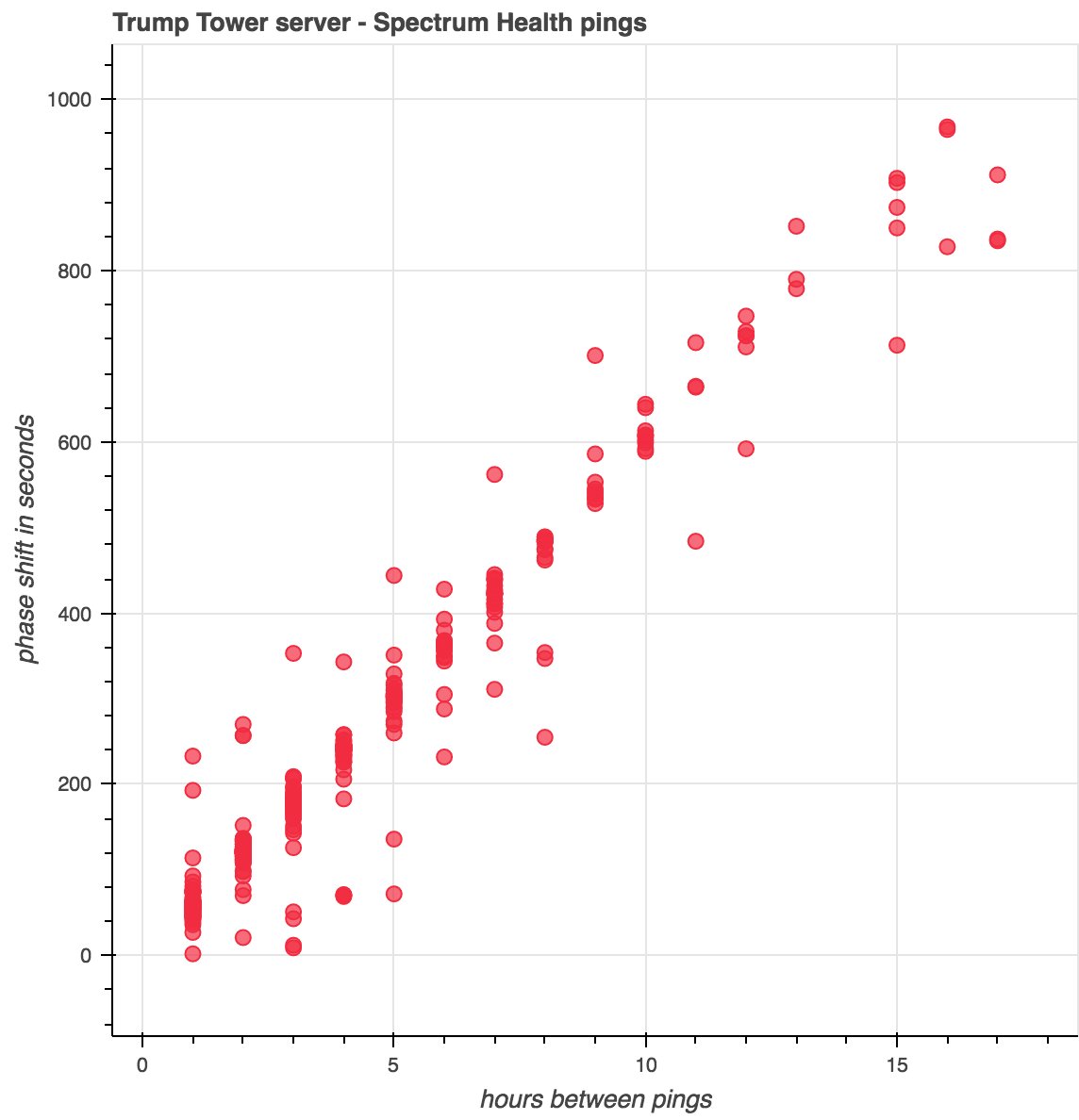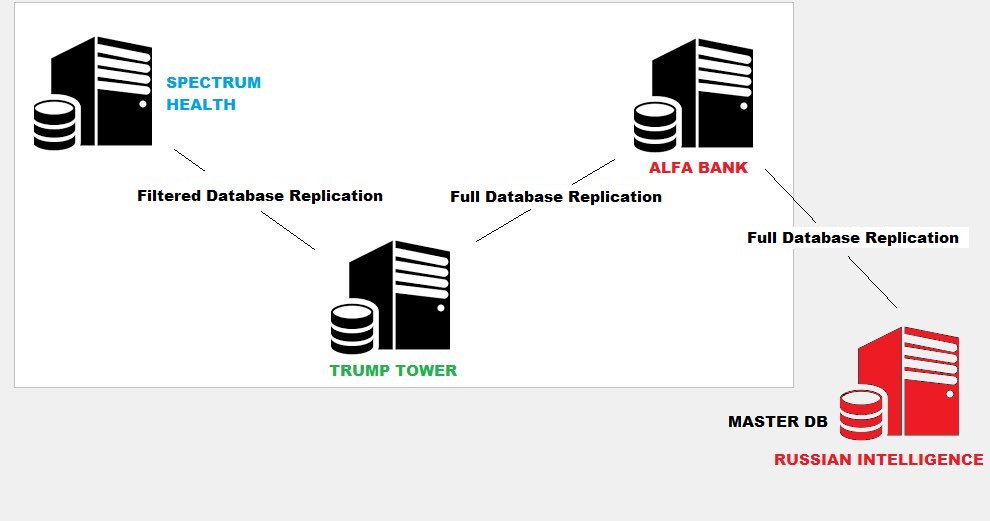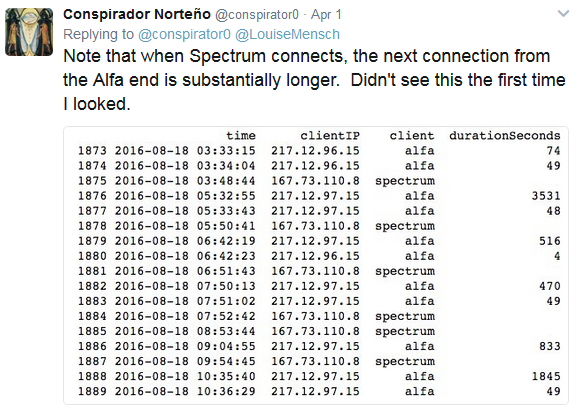EVERYONE WANTS TO TALK #TRUMPRUSSIATwo More Podcasts for Those Who Can’t Get EnoughPeter B. Collins, Russ Baker, Pat Thurston, Donald Trump
Photo credit: Tobias Sjösten / Flickr (CC BY-SA 2.0) and Unw®ecker / Wikimedia (CC BY-SA 3.0)
Our exclusive on Donald Trump, Russia, the mob, and the FBI drew a lot of interest. Here are two more podcasts featuring our Editor-in-Chief, Russ Baker. Each offers a different exploration of the issues.
download rss-35468_640
Click HERE and HERE to Download Mp3
Pat Thurston KGO – Full Text Transcript:
As a service to our readers, we provide transcripts with our podcasts. We try to ensure that these transcripts do not include errors. However, due to a constraint of resources, we are not always able to proofread them as closely as we would like and hope that you will excuse any errors that slipped through.
Pat Thurston: Good evening, I’m Pat Thurston. I am delighted to welcome Russ Baker back to the program. Russ is an author, former investigative reporter for the Village Voice, and editor-in-chief of WhoWhatWhy.org. So if you’re like me, you’ve been trying to understand the tangle of Donald Trump’s connections directly, or through his associates, with Russia and Vladimir Putin. And the web seems to grow bigger, more complicated, and more direct every single day, or at least our knowledge of that web does, and now come more revelations. Revelations that have to do with the Russian mob, Putin, and Donald Trump. And those revelations come to us courtesy of Russ Baker, on WhoWhatWhy.org, the recent piece headlined, “Why FBI Can’t Tell All on Trump, Russia.” And Russ Baker, thank you so much for being with us this evening.
Russ Baker: Oh, it’s great to be here Pat, always enjoy doing your show.
Pat: I shared your article with a lot of people. You may be getting a lot of calls because this is such an incredible piece. You’ve done a lot of work with a couple of your associates at WhoWhatWhy.org. And I do want to acknowledge that whatever we talk about today, people need to go to the website to get the article because we are not going to be able to touch on everything that we would like to touch on. And you want to get all the connections and names in your head. But let’s go through this, and Russ, there are a lot of freaky people that maybe we can start with who live at Trump Tower. Some of them with criminal backgrounds, and one of those people was Felix Sater. Can we start with Felix? Can you tell us about him?
Russ: Sure, now Felix didn’t live in Trump Tower as far as we know, but he certainly had an office there. He’s somebody whose family emigrated from the former Soviet Union, and he in the 1990s was involved with a financial firm that basically was accused of doing what they call pump and dump, which was selling essentially worthless stocks to unsuspecting,, unsophisticated investors, particularly preying on the elderly and those who just did not know what they were dealing with. Eventually that operation was shut down and the people involved were prosecuted. Felix Sater managed to cut a deal with the authorities when the FBI told him he had some information that they wanted and, whatever that was, they thought this was very exciting and so they took him under their wing. And basically what was going on was that Felix Sater knew a lot about the organized crime coming out of the former Soviet Union. And Pat, that organized crime had spread and had become a real cancer on the United States, was infiltrating every aspect of the financial system, also involved with other things, trafficking in nuclear weapons. I mean, they were just into everything, as we say in the article, it was right out of a James Bond movie. And so, this Russian mob had grown and grown and grown, and the FBI was very concerned about it by the mid-90s. And when they got a hold of Felix Sater, they decided to cut a deal with him, and so he became an informant for the FBI, and then while he was doing that became involved in another company. They moved into Trump Tower, and then he became quite friendly and close with Donald Trump. He became actually essentially a business partner with Trump in a number of ventures around the country and around the world, the most notable of which is called Trump Soho. It’s a big skyscraper tower with hotel and condominiums. And so Felix Sater, connected into the Russian mob, an informant into the highest echelons of that mob was, in that same period, working with Donald Trump, very close to Donald Trump. So this is the beginning of the story of Donald Trump’s connections and awareness of this Russian mob structure. And what’s very important to understand is that that Russian mob was connected then to Vladimir Putin.
Pat: Explain that a little bit to us, Russ. Because, when we think of organized crime here in the United States, we think of organized crime as a criminal organization, not part of the United States government. As a matter of fact, our government, our law enforcement works to thwart their operations. That’s not the same as the mob in Russia is it?
Russ: No, in fact, what happened in Russia was that even while there was a Soviet Union, there was mob in Russia, and they perform certain functions, some of which were considered to be very useful by the Soviet authorities. But in any case, when some of them emigrated, and they came to the West. But the wonderful Soviet Union came apart suddenly, there was a scramble, and there was a void, and all these people who had nothing became oligarchs, and certain people, who like Vladimir Putin, who were relatively minor figures in say the KGB, suddenly found themselves climbing up the political ladder. And so they needed these alliances. They needed muscle. They needed people who could move money. They needed to do money laundering and so forth. And so what you found in Russia was that there was really no ability to separate, let’s say, the state from the underworld, the oligarchs from the mobsters. It was all one giant party essentially. And it’s very interesting… your listeners don’t have to take our word for that… one of the top lieutenants in the Russian mob actually mentioned, the fact that his boss, fellow named Mogilevich we talked about, is considered the boss of bosses of this Eastern European mob. He happened to mention how close Mogilevich was with Putin, that they were very, very close. And shortly after he said that, he was gunned down by a sniper on the streets of Moscow.
Pat: It’s incredible, and there’s certainly more to come. Hang on with us. Russ Baker is my guest. The article that you’re going to want to read right now, and then of course you’re going to want to stay tuned to WhoWhatWhy.org, is, “Why FBI Can’t Tell All on Trump, Russia.” We’ll get to more. The telephone number is eighty-eighty-eight-ten, and that’s 415-808-0810. I’m Pat Thurston, and you’re listening to KGO.
Good evening, I’m Pat Thurston. Russ Baker is my guest. His website is WhoWhatWhy.org. It’s an investigative journalism website, and one that you should be checking every single day of your life. We’re talking about his newest piece, “Why FBI Can’t Tell All on Trump, Russia.” And this involves the Russian mob, and it is an incredible story. It’s a lengthy story. It’s a little complicated. And it’s one you’re going to want to read to yourself.
So alright, Russ, we’re talking about Felix Sater, he was an FBI asset. He became an FBI asset, and then you also brought up the boss of bosses, Mogilevich, and this is a guy who managed to get a Russian judge to release a ruthless and canny lifetime criminal from a Siberian prison. I can’t begin to pronounce his name. I think the last name is Ivankov. Tell us about him.
Russ: Yeah, so, there’s a lot of characters in here. It’s a little bit like watching your favorite Netflix original series. Quite a few characters. You know, the problem with this story is that more and more we are told to only deal with extremely simple things, but the world has gotten more and more complicated. And we actually need to do the hard work of studying these sorts of narratives. We do the hard work so everybody else doesn’t have to. Still, reading it is complicated, like the twists and turns of a TV series. But basically what we’re talking about here is, as I say, the FBI really panicked about the extent to which the Russian or Eastern European mob had infiltrated Wall Street, and they actually were worried that it could destabilize the entire American, and perhaps even world financial system. And so it became one of the FBI’s highest priorities. I would say that prior to 9/11, it actually may have been the highest priority for the FBI, was to stop these people. Now this guy Mogilevich, the so-called boss of bosses, a short, very fat man, and totally ruthless, he sent a lieutenant, this guy Ivankov, who he got sprung from a jail somehow in Russia, sent him to the United States. Ivankov was supposed to come over and run all these operations here. The FBI got word that he was in the United States, but they didn’t know where he was. They were trying to find him. The first place they actually found him was that he was living in Trump Tower. So, you know, you got another guy in Trump Tower. As soon as they identified him – somehow, whether he got a tip or whatever, but he vanished. The next time they were able to locate him, he was over in Atlantic City and casinos at Trump Taj Mahal. Now this is a very, very interesting, and as you noted Pat earlier, in our article at WhoWhatWhy.org, we actually go through many of the people who were in Trump Tower, and it’s this kind of incredible sort of rogues’ gallery. We looked at, for example, some of the top floors of the building right underneath Donald Trump’s triplex, and you see one person after another, the head of the mobbed-up Concrete Union’s lady friend, owning a bunch of apartments, that she all put together. She was so, they were so influential in the building. She decided she wanted a swimming pool in her apartment. And imagine in an apartment building, not a one pool for all the tenants, but just for her. And they were able to get Trump to say yes, and they had to go to very elaborate measures, redesign measures, to make that possible. There was another guy who was a mob connected, and there’s a story of Donald Trump personally closing on his apartment with him, sitting with the guy at the conference table as he counts out $200,000 in cash. We don’t have time here to go through all these people, but just one after the other, after the other. Connections with the Italian mob. Connections with the Russian mob. And trying to focus this, what we’re looking at is how Donald Trump was so close with, and actually dependent on, doing business with people who were criminals. And he did this for years, year after year, after year. And what appears to have been this sort of increasingly dominant group as his financial fortunes fell, as his casino empire came undone, were these Russians with fortunes of dubious origin. And so Felix Sater is very, very important, because he’s a guy who’s working for the FBI, according to some accounts reporting to them every single day. He’s in there doing business with Donald Trump on all of these projects, bringing all these people together with Trump, all these mysterious companies with ties again into the former Soviet Union. And so essentially what we’re looking at is some kind of configuration where Donald Trump is highly dependent on very, very problematical people for his survival. And that’s what we already see going back some years.
Pat: Did his involvement with the Russian mob, did that become really serious, because of his financial difficulties? He couldn’t get a loan any place. None of the banks would loan him any money because he was facing problems. And did he then get the loans that he needed, from Russia?
Russ: Let’s put it this way, what he did was, if you look at Trump Soho, or some of these other projects, he’s not putting most of the money in. The money is coming from Sater’s company, a company called Bayrock. It was all these people from the former Soviet Union, wherever that money came from. Another partner, firm called FL Group out of Iceland, but that was connected itself back to the former Soviet Union. And so on, and on, and on with these projects, we see monies coming from that region.
Pat: And some of these companies, some of these organizations, that you’re talking about, it’s not just the Russian mob. It seems as if the New York mob has gotten involved in some of these too. So it’s a big mob fest.
Russ: Yeah, you did see some New York mob connections. I think to some extent they were cooperating. The New York mob was on the scene earlier, and I assume, wanted a piece of the action. So yes, I think it’s some kind of a mixture there.
Pat: Now, Donald Trump said that he wouldn’t know what Felix Sater looked like if he was sitting in the room with him. Is that a credible claim, Russ?
Russ: Well, the problem that he has with that is that we have put up, I have to go back and look at our article, but I believe you’ll see pictures of Donald Trump standing there with Felix Sater. You know, I mean, these guys were, you know, cutting the ribbon on hotels. I mean, how does he not know who he is. He was a key partner with him for a number of years. And then after Sater… Sater had a criminal past. He had a criminal past, both for this pump and dump stock scheme, but also because he had attacked a man in a bar and hit him with at the time a broken bottle or something like that. And so he was convicted of that. And all of these things were basically a blighted record, and so he started using this other spelling of his name so that it wouldn’t show up in the records. So they were very connected. And then The New York Times, back in I think it was 2007, discovered Sater’s criminal record, did an article on it, and at that point Sater had to leave this real estate company that was working with Trump. But what did he do? He ends up staying in Trump Tower. Now he’s got an office, he’s got an email address, and a phone, all provided by the Trump organization. It’s kind of amazing, really the blatant fearlessness that, I think, the Trump people showed in continuing to associate with this man. He had these business cards that said that he was an advisor to Donald Trump, and he was, I believe, one floor below Trump. And he talked about how he used to just anytime he wanted, he would just mosey on up and just pop into the Donald’s office to hang out with him. We also described in our article on WhoWhatWhy.org, we also described how Donald Jr. and Ivanka went over to Russia to look around for opportunities. Donald Jr. in a speech said that Russia was their main source of funding at that point. And who took him under his wing and showed them around but Felix Sater! Again, this man that’s believed to be connected to the boss of bosses of the Russian mob, and only a few steps removed from Vladimir Putin himself.
Pat: So, during this time, Sater is all this time an asset to the FBI, an informant for the FBI, and what’s he doing, I mean, has he stopped his criminal activities and he’s merely informing, or is he just going about his business like he used to do?
Russ: Well, we don’t really know. I mean ostensibly he had “gone straight,” and he was now, you know, in business with an honorable individual like Donald Trump. And so, the FBI, what were they doing? They were running him, and he was providing them with information. We know that despite the fact that he was convicted in this pump and dump, and personally, as I recall, responsible for $40 million essentially stolen from people. He normally, of course, in a situation like that, you do a long jail time and you have a tremendous bill to pay. But instead, they let him off with eventually with nothing more than a $25,000 fine. And what they did was a sort of, instead of going after him for a number of years, they just left basically, left him to do his business. And he traveled widely, and he traveled to Eastern Europe. He traveled all kinds of places. Again this appears to have been with the permission of the FBI. And as far as we can tell, we think they used him to, again, sort of try to infiltrate or keep an eye on Mogilevich’s operations. Again, that’s too complicated to explain on this show, but it’s all in the article. They were involved in companies and scams everywhere. And so this was considered to be extremely important. Now, whether his information was any good or not, we don’t know. But the point is that the FBI had invested in this man, and Pat, the comparison we make is, do you may remember the mobster out of Boston, Whitey Bulger? [Pat: Oh yah!] And so what happened was, this was the head of a mob family in New England, and he was also just a stone cold killer. But the FBI, he cut a deal with the FBI, and they worked with him because he provided them with information. But he was continuing to have people killed while he was under the protection of the FBI. And so, this of course became a huge scandal and eventually you had to have another part of the FBI investigate that part of the FBI. There were tremendous recriminations for that, and so we don’t know yet fully the whole picture of what we’re looking at. But we do know that the FBI is protecting this guy Sater, and seemingly protecting that whole, you know, sort of penumbra around Donald Trump.
Pat: Which makes you wonder about the whole wiretapping of Trump Towers, you know, that happened in some of these offices. Russ, let me take another break here and let’s continue. You know, Ukraine looms large, and I’d like us to bring Ukraine into the story as well. Russ Baker is my guest. This article that we’re talking about, you can see this at WhoWhatWhy.org. It’s headlined, “Why FBI Can’t Tell All on Trump, Russia,” and we will get to that as well when we come back. By the way, Russ wrote the fabulous book Family of Secrets. If you haven’t read that one, you need to read it as well. I’m Pat Thurston, you’re listening to KGO.
Good evening I’m Pat Thurston. Russ Baker is my guest. Russ is an author, former investigative reporter for the Village Voice, editor-in-chief of WhoWhatWhy.org, and he’s an investigative reporter in his own right today as well. The book that he’s probably best known for is Family of Secrets. I think it’s one of my favorite books on my bookshelf today. But he wrote a piece recently. It’s on the website WhoWhatWhy.org. It’s headlined “Why FBI Can’t Tell All on Trump, Russia.” He and some of his cohorts at WhoWhatWhy got together, they did an investigation that was what, about two months you were investigating these Russia ties, Russ? What put you on to the mob angle?
Russ: I mean, I think a number of us were already aware of that, looking at it historically. Two of us, Jon Larsen, one of our board members, also senior editor for us, and I come out of The Village Voice, the late great back when The Village Voice was one of America’s, maybe the world’s, leading investigative publications. And back then we did a lot of stuff reporting on the mob, and this is the late 80s, early 90s. We were known for that, and one of our, couple of our people there, Robbie Friedman worked there. He did a lot of great stuff for the book later called Red Mafiya, about the Russian mob. And then another colleague Wayne Barrett, award-winning journalist, did some of the earliest work on Donald Trump and about Donald Trump and the mob, and wrote one of the early biographies of Trump. And so all that was on our radar, and had been for many years. And as Trump, as we saw him running for president, we were sort of amazed that this was not coming up. That somehow the media wasn’t paying any attention to this. So we were thinking, this is amazing, because anybody else, whether it was Hillary Clinton or anybody else, the littlest thing was turned into something huge. And yet here was this man, with this really stunning record of associates and behavior throughout his entire professional life, and none of it was coming up, none of it was sticking.
Pat: Do you think that the media, I mean even today, Russ, you’re the one who’s reporting on it. Do you think that the rest of the media who, you know, they follow his tweets like their manna from heaven, do you think they knew about it and ignored it? Do you think that they didn’t bother looking into what his background held? Was it too hard? Were they not been able to find what you found?
Russ: You know, I think one of the problems is that being in the media means trying to prove to everybody how objective you are. I know this may sound hard to believe, but that really is something we’ve all been told is, to always show our fairness and our balance and so on. And the problem is there isn’t any real balance in the world, and so if you’ve got two people running against each other, one of them may be basically a fairly decent relatively honest or completely honest person, and the other may be an out and out, you know, crook or thug. But how do you tell your readers, your audience about that, about that difference without sounding like you got an agenda. And so this is very hard to pull off. And I think most of the mainstream media tends to handle it exactly backwards Pat, that they go after people, who really there isn’t a lot to go after them on, because it makes it, it proves how sort of fair they are. And then they go easy on the really troublesome ones.
Pat: And you can’t balance those things you. So, Ukraine. Bring Ukraine into this story with the Russian mob, and Donald Trump, and Vladimir Putin.
Russ: Okay, so I think most people know that the Ukraine has been a big deal because of Russia’s attempts to influence it to their tacit, you know, what do you want to call it, invasion or sponsored quasi-invasion of parts of the Ukraine. Their sponsorship of victory, Yanukovych and various politicians who have run Ukraine at certain points, who were pro-Moscow, maybe Moscow puppets. The reason is very simple. Ukraine was the breadbasket of the former Soviet Union. It’s a very productive country. The soil, it’s got a lot of the minerals and factories or what have you. And also, it’s become very important because pipelines taking natural gas from the former Soviet Union to Western Europe, and most importantly to Germany, badly needed supplies of those countries they don’t develop themselves, passes through Ukraine. And so there was a big to do about these pipelines and who controlled them, and so forth. And without getting into all the detail, this became an enormous international issue, and Western Europe and the West panicked, United States panicked about Russia’s ability to basically shut off the spigot. So you saw American intelligence, all of these intelligence services, getting into the country, behind-the-scenes, trying to influence who would run the country and so on. Anyway, to make a long story short, in this period, we see that there’s a mysterious company that is given a key intermediary role with this pipeline, and essentially what happens is they discover that they believe that the man who actually secretly runs his company, again is this so-called Brainy Don, the boss of bosses, Mogilevich. The same man who supposedly getting into and running all these stock market things on Wall Street in New York, is running companies in Budapest and Pennsylvania, everywhere. Now he shows up supposedly controlling these vital energy pipelines to Western Europe, and so they were really panicked about this. As far as we know, they were again setting up operations, FBI and so onon, to try to figure out who was involved with that. And there’s Felix Sater, who really should’ve been locked up in that period, but instead, they’re letting him travel and he’s going to Ukraine. His father was from Ukraine, and his father is said to have been a soldier in Mogilevich’s army of mobsters. And so there’s all this stuff going on in Ukraine. And then we start seeing all these other familiar names piling in. Paul Manafort, Roger Stone, all these folks who later would become involved with Trump’s campaign, start going into Ukraine and being paid obscene amounts of money to basically try to help these candidates, these pro-Moscow candidates to run and control the situation there. They’re helping oligarchs improve their PR image and so forth. And so it’s this kind of massive piling on. We recently have found that Paul Manafort was being paid $10 million a year for years in order to make one of these oligarchs look good.
Pat: Unbelievable, and then there’s Trump’s personal attorney Michael Cohen, who lobbied Michael Flynn who subsequently resigned, with a scheme to lift sanctions on Russia because of Ukraine.
Russ: Right, so here’s another twist in our Netflix original here. So, flash forward a number of years, and stuff in Ukraine has been going on, but started, let’s say back in 2005 or 2006. But this year in January of this year, Donald Trump, the month that he was inaugurated, we know that a meeting was held at a hotel on Manhattan’s Upper East Side. That meeting involved a member of the Ukrainian Parliament. This man is part of the pro-Putin faction, and he had come there with a so-called peace proposal, a proposal that was supposedly, what the U.S. says, embargo against Russia because of its occupation of parts of the Ukraine. And so this peace proposal was supposed to stop this embargo and work this out. And the peace proposal is brought by this Ukrainian, and he meets in this hotel with Cohen who is Donald Trump’s personal attorney, used to be the attorney for the Trump organization, now his private attorney. And another man, Felix Sater. So even after all of these years, this man is still hanging out, here he is hanging out with Trump’s lawyer, and they’re sitting in this hotel receiving this Putin-sponsored peace treaty. And according to this the parliamentarian, then Cohen takes it to the White House and gives it to General Flynn, who we now know himself has all these ties to Russia, and of course, traveled to Russia in late 2015 – the famous picture of him sitting at a dinner next to Vladimir Putin. He was paid $40,000 to show up and attend this dinner. So what you’ve got is, you’ve got all of these people. And then you even look at Cohen himself, he joined Trump’s organization, oh, about 2006, 2007. We looked into his past and guess what? His wife is Ukrainian. His brother’s wife is Ukrainian. The brother’s father-in-law is a man who rose from humble origins to become a billionaire in the Ukraine. So, I mean, this is this incredibly lucky bunch, and they’re all around Trump.
Pat: And it’s just all so coincidental. Alright, let me do one more break and when we come back I do want to get to the FBI and go back to Felix Sater. I want to talk a little bit about why the FBI can’t come public with this information at this point in time, and also the law-enforcement figures who maintained a kind of relationship with Sater, one of them actually to Trump. We’ll talk about that when we come back. Russ Baker is my guest. Russ Baker is the, he’s the editor in chief of WhoWhatWhy.org. He’s also a former investigative reporter for The Village Voice, and of course he is an author. I’m Pat Thurston and you’re listening to KGO.
Good evening, I’m Pat Thurston. Russ Baker is my guest. Russ is the editor-in-chief at WhoWhatWhy.org. You’ll always learn something there, I would recommend it highly. His newest piece is, “Why FBI Can’t Tell It All on Trump, Russia.” So Russ, let’s talk a little bit about Felix Sater and the relationship that these FBI agents seem to have to him. These were the ones who, what they were running him. Is that the term? They were the ones who were controlling him?
Russ: That’s right, and what we find is that when it came time for him to face the music for the crimes that he had committed, these people trooped into the court room – it was a closed session with the judge, and both the FBI people and the prosecutors asked for leniency and talked about how terrific he’d been, how incredibly important and incredibly helpful he had been. They said that he’d been helpful, both on national security, and on matters relating to organized crime. Now, we don’t know too many specifics. We don’t know what that really amounted to, but they were very, very high on this guy, which is quite interesting because of all of his connections back to Putin. So this is where it starts getting so complicated. If Putin is tight with the head of this worldwide Eastern European mob, if this man has some connections in there, if he’s working closely with the FBI and he’s close with Trump, and Trump’s doing business all these people, it’s very hard to sort out what’s going on, or what the agenda is. But in any case, they were so determined to protect him, that when in a lawsuit, some of this threatened to come out, they went after these lawyers very aggressively. And they did everything they could to stop them, to harass them, to shut them up, and what we see, and this is extremely odd, is that we noticed that two of the U.S. attorneys who were supposed to be prosecuting Felix Sater left the government and show up in a private law firm where they are now representing Felix Sater. And we also see that a couple of the FBI agents who were involved with handling him, end up in strange circumstances. Just to kind of summarize, these two women, these two prosecutors end up at this firm. This firm has a Moscow office, a very big Moscow practice, and they end up, I mean it’s really quite astonishing. One of them ends up – well, the firm I should say, ends up handling Donald Trump’s ethics and his investment – so when he becomes president, and of course you remember there was all this controversy about, you know, could he be president, what to do with all of his business interests. And so, he said, well, I brought this law firm in. It’s that same law firm with those women who would been handling Felix Sater, now supposedly, sorting all of this stuff out. And we see that one of the FBI agents handling Felix Sater goes into private security, and they start a firm, and they get hired by Donald Trump. And as far as we know, to this very day, he is personally providing security for Donald Trump. So what does this all mean?
Pat: He’s that guy whose name was mentioned – you mention this in the article, he was somebody who was kind of roughing up the protesters at Trump rallies.
Russ: Right, right, but I mean how amazing is that? This guy is supposedly working for us in the FBI trying to stop the Russian mob, and Putin, and everything. And now he’s roughing people up at Trump rallies. I mean, it’s extraordinary. The other guy who is also involved with this is now in private practice of cyber security. Sound familiar? The whole story with the Russian hacking? And he gets interviewed by the Washington Post, and he says they asked him about the stuff with Hillary and the hacking, and he says, “Oh I don’t think the Russians were trying to help Trump, I think they were just try to send a message to Hillary.” Well, the Washington Post probably didn’t know, or didn’t mention, that this man had been involved with running Felix Sater, who was in with Donald Trump. It’s just this incredible… it’s a complicated extremely disturbing meta-pattern.
Pat: So you revealed all of this, and I have a couple questions about the FBI director, Comey. He told us about reopening Clinton’s email investigation just before the election. Surely he knows about the FBI’s ongoing investigation with the Russia connections and Donald Trump. Why didn’t he reveal that to the public?
Russ: I think he’s in an extremely difficult position, and, you know, we’ve heard that he was pressured by the New York FBI office, and of course that’s the office that was running Sater, that he was pressured to reveal these things about Hillary Clinton. We don’t know for sure what that’s all about. He seems to have gone back and forth, and have been under a lot of different kinds of pressures, but we know that the net effect of this, the net effect of the New York FBI-Sater operation, pressing him to come forward with this stuff about that they’re looking into Hillary Clinton. After Hillary Clinton had gotten past all that stuff about her servers, now it was about something else, you know. And so this was extremely damaging to her by almost any calculations. That may have been the factor that resulted in her loss and Donald Trump’s election as president of the United States.
Pat: Yeah, and after all the dumping of the Podesta emails as well. So recently Russ, Devin Nunes, the chairman of the House intelligence committee, he’s been all freaked out and ran to the White House with something. Had a meeting on the White House grounds first, then went before the press, then ran to the White House to share what he knew, that had something to do with intercepts of people on the Trump team. Could this be what he got hold of, what he was all freaked out about, and still is? Because he still hasn’t released the information, even to his own committee?
Russ: Today he said something about that what he looked at, supposedly in a secure facility (SCIF – Sensitive Compartmented Information Facility) of the White House, was, you know, incidental intelligence collected on Americans, and on Trump. And he says that it had nothing to do with Russia. Now you have to be careful with all of that, because it might have nothing to do with Russia, but it might have something to do with a Russian. It might have nothing to do with Russia, but might have something to do with Ukraine, or Kazakhstan, or Georgia, or any of these other places where the Trump organization has been doing business, where Felix Sater has been traveling and so forth. And so, you cannot, you know, you have to be careful to understand what they say may be literally true, but substantively untrue.
Pat: Like what the definition of is, is. Russ, we need an independent prosecutor, right?
Russ: I think so.
Pat: I think so too. You have been delightful and compelling as always, and I’m going to ask people again to go and read the entire thing, because there are a lot of twists and turns, a lot of complexities. The article is called, “Why FBI Can’t Tell All on Trump, Russia,” and you can access that in addition to a number of other investigative reports at WhoWhatWhy.org. Russ Baker has been my guest. Russ, delightful to talk with you, thank you.
Russ: Thank you. My Twitter is @RussBaker.
Pat: Alright, @RussBaker. I’m Pat Thurston, this is KGO.
http://whowhatwhy.org/2017/04/12/everyo ... umprussia/ 

